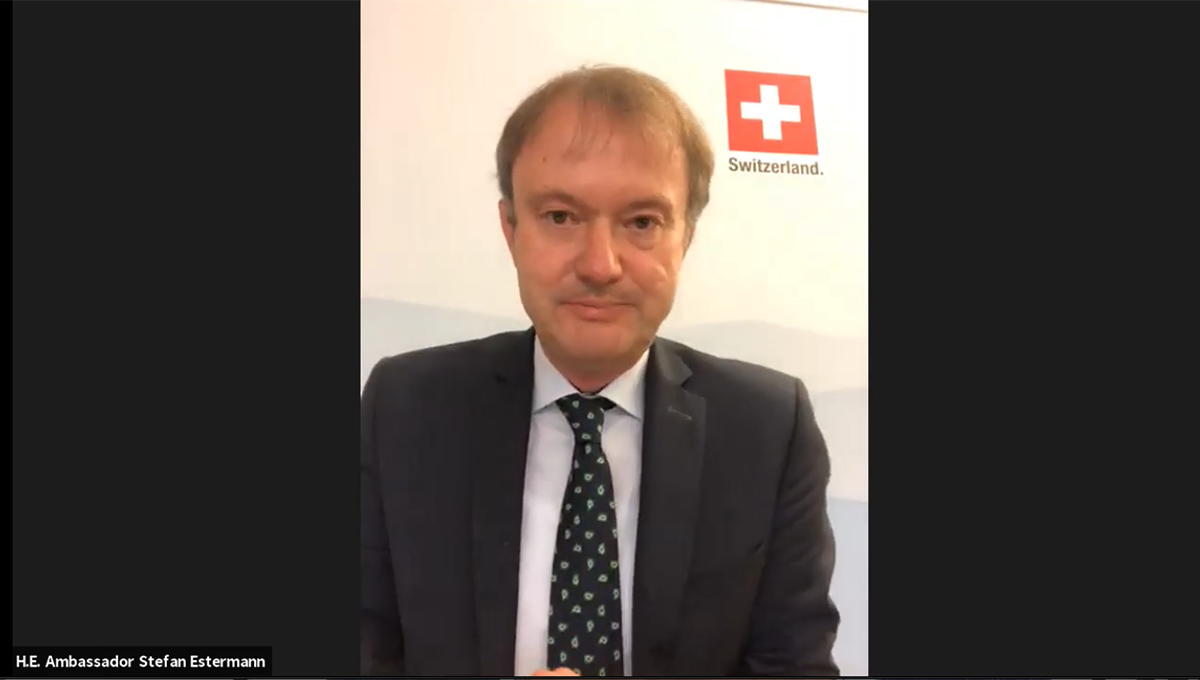Anti-corruption Collective Action works: Swiss Ambassador's opening remarks at UNGASS 2021 side event

H.E. Ambassador Stefan Estermann, Head of the Prosperity and Sustainability Division, Swiss Federal Department of Foreign Affairs, made the following opening remarks at our joint virtual side event on Collective Action at the 2021 Special Session of the General Assembly against Corruption (UNGASS) on 2 June. View the full recording of the side event.
Ladies and gentlemen,
The Swiss government is proud to partner with the Basel Institute in sponsoring this side-event on collective action.
The Basel Institute has inspired and promoted collective action initiatives ever since when it was founded in 2003. It has advised a wide range of private sector, non-governmental and government actors and firmly established itself as an international knowledge center in this field. The Swiss government benefitted from the Basel Institute’s experience and advice in the drafting of our first national anti-corruption strategy that was adopted in November last year.
One of the goals of the Swiss strategy is to ensure that companies with honest business practices do not find themselves at a competitive disadvantage on international markets. We are determined to support the companies that invest in compliance and do business with integrity.
As a State Party to the United Nations Convention Against Corruption, we are supposed to promote the use of good commercial practices among businesses, and between businesses and the State – this is Article 12 of the Convention. I would argue that collective action is indeed a good practice, not just because it is undertaken for all the right reasons, but also because it works!
So what is collective action?
I will not define it but simply say that it is the solution to collective action problems, like the so-called prisoners’ dilemma. Collective action problems arise in situations where individuals would be better off cooperating – but fail to do so because they do not trust each other – or at least not enough.
This applies to preventing and fighting corruption. We all know that corruption is bad for business. All the States Parties of the UN Convention against Corruption are committed to prohibiting foreign bribery, and to enforcing this prohibition. But can we be really sure that our main competitors will play by the rules? Are we not putting our companies at a disadvantage if we vigorously enforce the foreign bribery prohibition – while some competitors may be allowed to take a free ride, and bribe their way into new markets?
To this problem, the OECD Anti-Bribery Convention, through collective action, has produced an ingenious solution: Thanks to a robust peer review mechanism, the parties are assured that other jurisdictions will indeed enforce the foreign bribery prohibition, and that their companies will not undercut fair competition by resorting to corrupt practices.
Of course, we would be even more comfortable if all major exporting countries were parties to this Convention and participated in the peer review. For collective action to be successful, the most important players should be on board.
At today’s side-event, we are going to explore a few examples of collective action. I look forward to learning more about these initiatives from the distinguished panelists. We are going to see how collective action plays out in different environments.
According to the Political Declaration adopted at this special session of the General Assembly against corruption, all UN Member States will encourage the private sector to take collective action, including through the establishment of public-private partnerships. Let us therefore continue to develop these tools, and use them more broadly.
I hope that the success stories that lie before us will indeed inspire more initiatives in more markets and environments.
Each success story builds more confidence that we can overcome corruption if we do it together!
In the name of the Swiss government, I wish to thank the Basel Institute for co-organizing this side-event, and the panelists for their readiness to share lessons learned.



